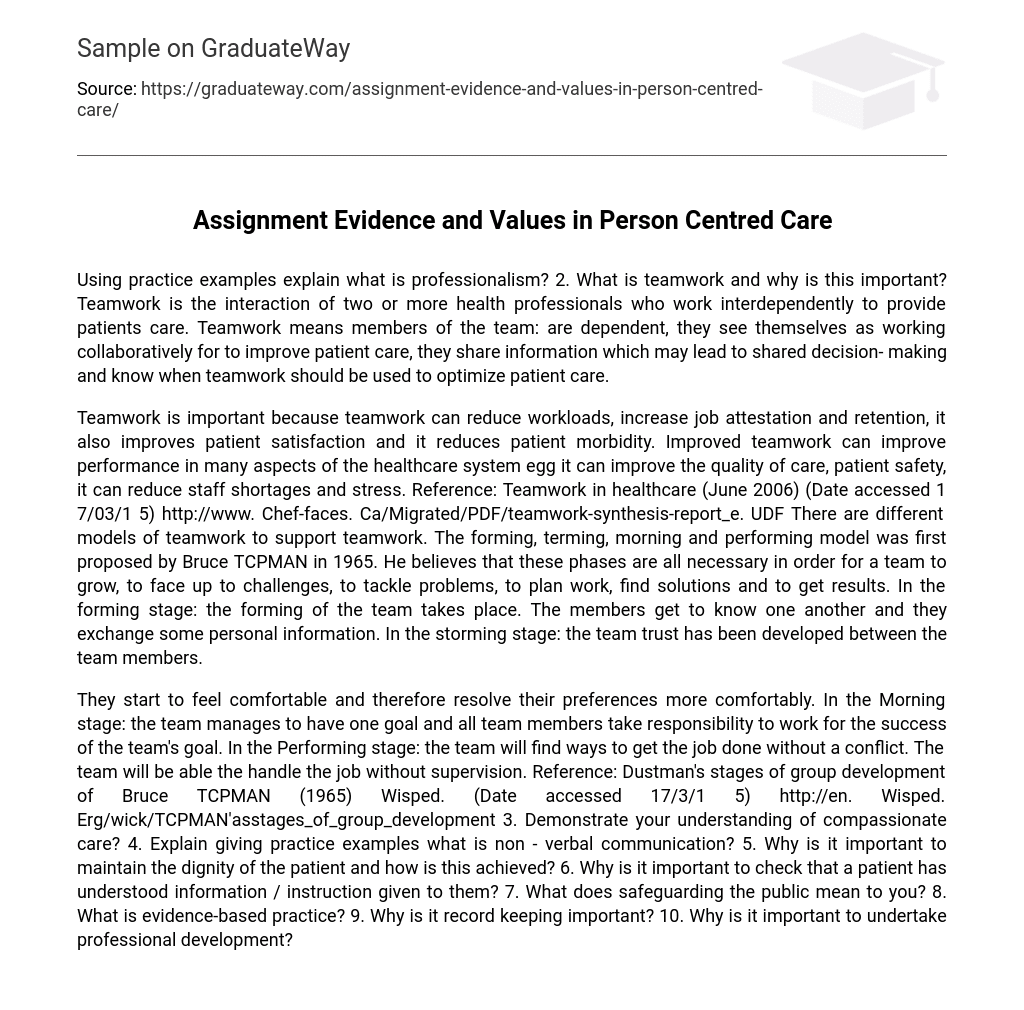Using practice examples explain what is professionalism? 2. What is teamwork and why is this important? Teamwork is the interaction of two or more health professionals who work interdependently to provide patients care. Teamwork means members of the team: are dependent, they see themselves as working collaboratively for to improve patient care, they share information which may lead to shared decision- making and know when teamwork should be used to optimize patient care.
Teamwork is important because teamwork can reduce workloads, increase job attestation and retention, it also improves patient satisfaction and it reduces patient morbidity. Improved teamwork can improve performance in many aspects of the healthcare system egg it can improve the quality of care, patient safety, it can reduce staff shortages and stress. Reference: Teamwork in healthcare (June 2006) (Date accessed 1 7/03/1 5) http://www. Chef-faces. Ca/Migrated/PDF/teamwork-synthesis-report_e. UDF There are different models of teamwork to support teamwork. The forming, terming, morning and performing model was first proposed by Bruce TCPMAN in 1965. He believes that these phases are all necessary in order for a team to grow, to face up to challenges, to tackle problems, to plan work, find solutions and to get results. In the forming stage: the forming of the team takes place. The members get to know one another and they exchange some personal information. In the storming stage: the team trust has been developed between the team members.
They start to feel comfortable and therefore resolve their preferences more comfortably. In the Morning stage: the team manages to have one goal and all team members take responsibility to work for the success of the team’s goal. In the Performing stage: the team will find ways to get the job done without a conflict. The team will be able the handle the job without supervision. Reference: Dustman’s stages of group development of Bruce TCPMAN (1965) Wisped. (Date accessed 17/3/1 5) http://en. Wisped. Erg/wick/TCPMAN’asstages_of_group_development 3. Demonstrate your understanding of compassionate care? 4. Explain giving practice examples what is non – verbal communication? 5. Why is it important to maintain the dignity of the patient and how is this achieved? 6. Why is it important to check that a patient has understood information / instruction given to them? 7. What does safeguarding the public mean to you? 8. What is evidence-based practice? 9. Why is it record keeping important? 10. Why is it important to undertake professional development?





